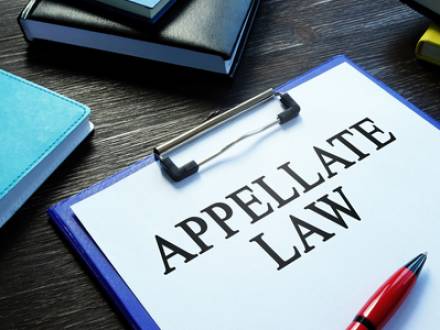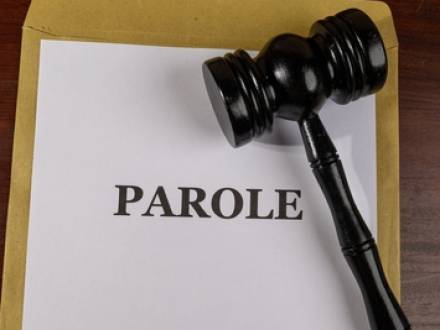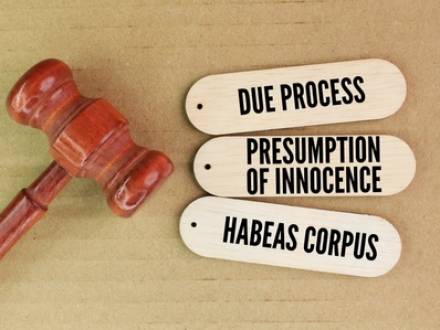Recent Blog Posts
What Is the Stand Your Ground Law in Texas?
 Most Texans have heard of Stand Your Ground. They’ve seen the news stories, heard the debates, maybe even argued about it at a barbecue. But when it actually matters, when someone is facing criminal charges after defending themselves, the details become critical.
Most Texans have heard of Stand Your Ground. They’ve seen the news stories, heard the debates, maybe even argued about it at a barbecue. But when it actually matters, when someone is facing criminal charges after defending themselves, the details become critical.
Texas's Stand Your Ground law determines whether you had the legal right to use force, including deadly force, in a specific situation. Getting it wrong doesn't just mean losing an argument. It means potentially facing years in prison for what you believed was lawful self-defense. If you've been charged after defending yourself or your property, our Montgomery County criminal defense lawyers can evaluate whether Stand Your Ground protections apply to your case.
What Does Stand Your Ground Mean Under Texas Law?
Texas doesn't actually use the phrase "Stand Your Ground" anywhere in its laws. The concept comes from self-defense statutes that remove the duty to retreat in certain situations. Put simply, you're not legally required to run away before defending yourself. However, this only applies if you had a right to be where you were, and you didn't provoke the situation.
The 2255 Savings Clause: When Can Federal Prisoners Use 2241?
 Federal prisoners often believe they can challenge their convictions through a "back door" when a Section 2255 motion is either barred or denied because of the "savings clause." In truth, the savings clause is far more restrictive than you may think. Following the 2023 U.S. Supreme Court’s decision in Jones v. Hendrix, the savings clause has become one of the narrowest and most misunderstood avenues for post-conviction relief.
Federal prisoners often believe they can challenge their convictions through a "back door" when a Section 2255 motion is either barred or denied because of the "savings clause." In truth, the savings clause is far more restrictive than you may think. Following the 2023 U.S. Supreme Court’s decision in Jones v. Hendrix, the savings clause has become one of the narrowest and most misunderstood avenues for post-conviction relief.
Defendants who are navigating federal habeas must understand when the savings clause actually applies, when it does not, and how courts will treat any attempt to "repackage" a claim under Section 2241. If you are struggling with a Section 2255, it is essential that you have a knowledgeable Houston appeal lawyer as your legal advocate.
Texas Convictions After Rivers v. Guerrero: What You Must Know
 The Supreme Court of the United States issued a unanimous decision in Rivers v. Guerrero on June 12, 2025. This decision clarified when a federal habeas corpus petition under the Antiterrorism and Effective Death Penalty Act of 1996 becomes a second or successive application under 28 U.S.C. Section 2244(b). This means that once a district court enters judgment on a first-filed Section 2254 petition, any later filing qualifies as a second or successive petition, regardless of whether an appeal of the first is pending.
The Supreme Court of the United States issued a unanimous decision in Rivers v. Guerrero on June 12, 2025. This decision clarified when a federal habeas corpus petition under the Antiterrorism and Effective Death Penalty Act of 1996 becomes a second or successive application under 28 U.S.C. Section 2244(b). This means that once a district court enters judgment on a first-filed Section 2254 petition, any later filing qualifies as a second or successive petition, regardless of whether an appeal of the first is pending.
This decision is significant in the state of Texas when a state-convicted petitioner is seeking federal collateral relief. Under the new decision, the filing of new claims via a separate petition mid-appeal may not be possible, significantly raising the stakes for first filings in the Fifth Circuit. Because appeals are so limited, yet so vitally important, you must have a highly experienced Texas appeals lawyer as your legal advocate.
Online Solicitation in Texas: Felony or Misunderstanding?
 In today’s digital world, a conversation that begins with texting or chat rooms can quickly escalate into criminal charges if law enforcement suspects that online solicitation has occurred. Texas has some of the most severe solicitation laws in the country, particularly as they pertain to minors. A single online message, often with no physical meeting or contact, can result in felony charges that can alter your life forever.
In today’s digital world, a conversation that begins with texting or chat rooms can quickly escalate into criminal charges if law enforcement suspects that online solicitation has occurred. Texas has some of the most severe solicitation laws in the country, particularly as they pertain to minors. A single online message, often with no physical meeting or contact, can result in felony charges that can alter your life forever.
Regarding minors, Texas Statute Section 33.021 of the Penal Code governs online solicitation. Texas online solicitation laws changed significantly in September 2015, when the definition of a minor for online solicitation was updated, and the "fantasy defense" was allowed after a prior statute was found unconstitutional. Today, any adult aged 17 or older who intentionally uses electronic communication to engage in sexually explicit conduct with a minor or distribute sexually explicit material to a minor can be charged with online solicitation.
Parole Barriers to Employment in Texas
 For those on parole, finding steady employment can be crucial to rebuilding and regaining their lives. Unfortunately, parole conditions (Title 4, Subtitle G, Chapter 508) and state regulations may place unexpected limits on the types of jobs parolees are allowed to accept. Beyond the obvious restrictions of working in childcare or law enforcement, some other occupations with hidden barriers can derail a job search.
For those on parole, finding steady employment can be crucial to rebuilding and regaining their lives. Unfortunately, parole conditions (Title 4, Subtitle G, Chapter 508) and state regulations may place unexpected limits on the types of jobs parolees are allowed to accept. Beyond the obvious restrictions of working in childcare or law enforcement, some other occupations with hidden barriers can derail a job search.
Parolees who are expecting these restrictions can better avoid setbacks while planning for realistic job opportunities. Speaking to an experienced Austin, TX parole attorney can help you get on the right employment path early on in the process.
Why Does Employment Matter in Texas Parole Situations?
In many cases, finding and maintaining employment is a condition of parole, so the parolee has little input into whether or not employment is necessary. Failure to adhere to the condition of maintaining employment can lead to a parole violation and even revocation of parole. Both the parole board and the state of Texas believe holding down a job plays a crucial role in the parole process for the following reasons:
When a Bar Fight Becomes a Felony: Texas Aggravated Assault
 Mere seconds can potentially make the difference during a night out at a local Texas bar, as a simple scuffle turns into felony aggravated assault charges in the proverbial blink of an eye. In addition to serious legal consequences, a felony conviction also carries collateral consequences. A felony conviction can make it difficult to obtain employment or housing and can complicate the process of obtaining or maintaining a professional license.
Mere seconds can potentially make the difference during a night out at a local Texas bar, as a simple scuffle turns into felony aggravated assault charges in the proverbial blink of an eye. In addition to serious legal consequences, a felony conviction also carries collateral consequences. A felony conviction can make it difficult to obtain employment or housing and can complicate the process of obtaining or maintaining a professional license.
If you planned on seeking higher education through a federal student loan, those dreams can also disappear. It is essential to understand when a bar fight escalates from a misdemeanor to a felony. A highly skilled Conroe, TX criminal defense lawyer can begin building a defense on your behalf while working to protect your future.
How Does Texas Law Define Aggravated Assault?
Under Texas Penal Code Section 22.02, aggravated assault occurs when someone causes serious bodily injury to another person or uses a deadly weapon during an assault. When a person intentionally, recklessly, or knowingly inflicts severe harm on another person, or uses a firearm, knife, or other weapon during an assault, then the assault becomes aggravated assault.
The Harsh Reality of TX Magic Mushroom Possession Penalties
 Psilocybin mushrooms, also known as "magic mushrooms," are gaining national attention for their potential medical benefits regarding depression, anxiety, and PTSD. In Texas, however, possession of magic mushrooms is a serious criminal offense. Psilocybin is classified as a Penalty Group 2 controlled substance, placing it in the same legal category as PCP and MDMA.
Psilocybin mushrooms, also known as "magic mushrooms," are gaining national attention for their potential medical benefits regarding depression, anxiety, and PTSD. In Texas, however, possession of magic mushrooms is a serious criminal offense. Psilocybin is classified as a Penalty Group 2 controlled substance, placing it in the same legal category as PCP and MDMA.
Even small amounts of psilocybin can result in felony charges, time behind bars, and a permanent criminal record. If you have been charged with possession of psilocybin, it is important to speak to a highly skilled Conroe, TX drug crimes attorney who will protect your rights and your future.
What Are Magic Mushrooms?
Psilocybin is a chemical obtained from specific types of fresh or dried mushrooms. Psilocybin mushrooms are found in Mexico, Central America, and the United States and are commonly known as magic mushrooms or shrooms. Psilocybin mushrooms are ingested orally or brewed as a tea.
Understanding 11.07 Writs of Habeas Corpus in Texas
 Anyone who has ever been arrested and convicted for a crime they did not commit or who has had a loved one in this situation knows the sadness, frustration, anger, and desperation it can cause. Perhaps appeals were made, but they were denied, and you or a loved one is sent to prison. What can you do? Is there any recourse for such an untenable situation?
Anyone who has ever been arrested and convicted for a crime they did not commit or who has had a loved one in this situation knows the sadness, frustration, anger, and desperation it can cause. Perhaps appeals were made, but they were denied, and you or a loved one is sent to prison. What can you do? Is there any recourse for such an untenable situation?
You may or may not have heard of a writ of habeas corpus. There are different types of these writs, but they all focus on post-conviction relief in the form of overturning a wrongful conviction. While a writ of habeas corpus is often confused with an appeal, an appeal can only make arguments based on trial errors and must be filed immediately following the trial and conviction.
Generally speaking, a writ of habeas corpus allows a person convicted of a crime to present new evidence that was not considered at trial or to argue ineffective assistance of counsel. If you feel you or a loved one could be eligible for an 11.07 writ of habeas corpus, speak to an experienced Dallas, TX writs lawyer.
How the Amount of Drugs Influences Charges and Sentencing
 A woman recently arrested with almost 1,300 pounds of cocaine was given a $750,000 bond. The Beaumont woman has been charged with first-degree felony drug possession after being stopped on I-10 for a traffic stop. The cocaine was being transported in a white, 15-passenger van towing a U-Haul trailer. When the police saw the driver commit a traffic violation, the woman was pulled over, and a K-9 was deployed, alerting the police officer to the presence of narcotics.
A woman recently arrested with almost 1,300 pounds of cocaine was given a $750,000 bond. The Beaumont woman has been charged with first-degree felony drug possession after being stopped on I-10 for a traffic stop. The cocaine was being transported in a white, 15-passenger van towing a U-Haul trailer. When the police saw the driver commit a traffic violation, the woman was pulled over, and a K-9 was deployed, alerting the police officer to the presence of narcotics.
When the U-Haul trailer was searched, the police found 12 large containers filled with cocaine. The street value of the cocaine is estimated to be about $17.3 million, or $13,584 per pound. The woman was transported to the Jefferson County Jail, where she was charged with Possession of a Controlled Substance of more than 400 grams. If the woman is able to pay the bond, she will be forced to wear a GPS monitor and remain in Jefferson, Harris, or Chambers counties.
Can You Defend Yourself Against Police Excessive Force?
 With a very narrow exception, it is virtually never legal in the state of Texas to use self-defense against a police officer. Using self-defense against a police officer – even if you feel justified because the officer is using excessive force – is generally charged as resisting arrest or assault. Under Texas Penal Code 9.31(c), if a police officer uses excessive force before the person attempts to resist, then that person may, in response, use "reasonable force to resist."
With a very narrow exception, it is virtually never legal in the state of Texas to use self-defense against a police officer. Using self-defense against a police officer – even if you feel justified because the officer is using excessive force – is generally charged as resisting arrest or assault. Under Texas Penal Code 9.31(c), if a police officer uses excessive force before the person attempts to resist, then that person may, in response, use "reasonable force to resist."
As you might imagine, this is a very complex area of the law, and claims of self-defense against a police officer are rarely successful without clear documentation of excessive force. While Texas generally allows the use of self-defense, and self-defense is one of the primary defenses to charges of assault, there are certain limitations. If you have been charged with assault or resisting arrest, and you believe you were justified in your response to excessive force, speaking to a Conroe, TX criminal defense attorney can be beneficial.







